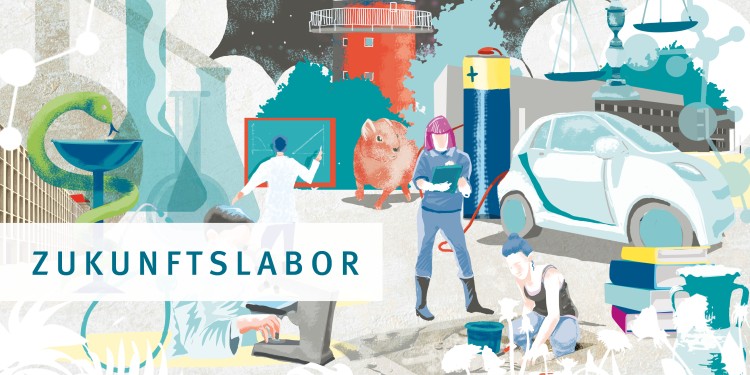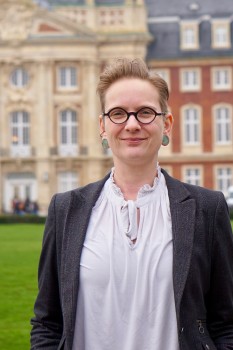
“Interdisciplinary exchange is our core business”
Münster University’s “Future Lab” sees itself as a well-oiled bracket linking the Rectorate, central administration and researchers in the 15 Faculties and in research alliances. For the University, it participates in developing and coordinating projects relating to strategy and innovation. In this interview with Kathrin Nolte, Dr. Corinna Lenhardt, who heads the Münster University Future Lab, describes her team’s everyday tasks and explains the roles played in them by networking and interdisciplinary collaboration.
The Münster University Future Lab has been existence since April 2022. What are its tasks?
In the Future Lab we draw up and advance those projects which, from the very beginning, require the perspectives and active involvement of a large number of people. This means that the projects are located mostly at the interface between Rectorate, central administration and researchers. They include projects relating to strategy and innovation – for example the Excellence Strategy, the current work on raising the University’s research profile, or its participation in the European university network “Ulysses”. But we also support and network researchers in the Topical Programs and the University’s core profile areas and emerging fields.
How important are networking and interdisciplinary collaboration in your everyday work?

How does the Future Lab work in practice?
What it means in practice is that in the Future Lab there are always working groups and discussion groups sitting down together to exchange ideas and work on joint solutions. At the moment, for example, we’re seeing the start of the round-table discussions between researchers and the Rectorate on naming and defining core research profile areas and emerging fields. We also have members of the central administration sitting at the table, in various constellations, who for example contribute ideas and data, help to design tailor-made processes and projects, and set about implementing the results of workshops.
What services do you offer for staff working in the fields of research and administration?
We plan, coordinate and moderate complex strategic projects initiated by the Rectorate and, at the same time, act as an interface between, on the one hand, major projects being undertaken by research alliances and, on the other, the Rectorate and administration. Our aim is to make communication channels shorter, processes more transparent, and projects more participative and fast-moving.
